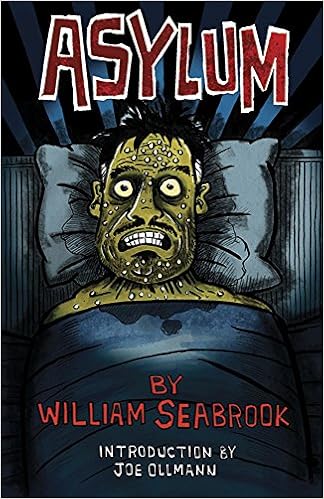
Overall Thoughts
William Seabrook was a writer who became an alcoholic. The reason he started drinking was because he was afraid of being a mediocre writer. So, William gave himself up to a mental institution (asylum) in 1933. Before there was alcoholics anonymous, people believed alcoholism was simply a disease that could be cured. One of the ways people thought it could be cured was to go to a mental institution. Granted, this belief was slowly coming to an end at the time William turned himself in, it was still a common belief. So, this book is a raw, real, first-hand journey into a mental institution in 1933. If that last sentence didn’t make you want to read the book, this one isn’t for you.
Impactful Quotes
“It isn’t drinking that makes a drunkard. I had drunk for years, enthusiastically, and with pleasure, when I wanted to. Then something snapped in me, and I lost control. I began to have to have it when I didn’t want it. I couldn’t stop when I wanted to. Instead of being a pleasure any more, it was just too bad. I wasn’t here [the mental institution] because I drank a lot… or too much. I was here, just like the rest, because I had lost control.”
A sobering description of how William became an alcoholic and why he needed help.
“I am inclined to believe that no man is a drunkard until he drinks, hating it, in the mornings. Then he is an addict in the drug-sense. Of course, ‘morning’ is an arbitrary way of putting it. It is merely repeating that no man is a drunkard until he has to drink when he doesn’t want to. Never take a drink when you need it, and you’ll never be a drunkard though you come home pie-eyed four nights out of seven.”
Another great example of William’s raw writing. He doesn’t hold back when he describes his thoughts on the subject. There’s something powerful about a man admitting his faults and attempting to explain the psychology and patterns behind them.
“…I began to find myself interiorly illumined with a sort of mystical, if not maudlin, exaltation strangely like that which comes sometimes from the prolonged drinking when the whiskey is good and one drinks a lot of it without becoming violent or sick. I suddenly found it wonderful, strange and beautiful, to be sober, and it curiously produced an illuminated sensitiveness which was astonishingly like the flashes a drunken man gets on the rare occasions when drunkenness seems golden and divine. It was as if a veil, or scum, or film had been stripped from all things visual and auditory, or as if the world has been suddenly diffused with a soft, unearthly, revealing light.”
William wrote this after a few months in the mental institution. He’s describing the moment when soberness started feeling good to him. If you know anyone who is a drunk, you know exactly what the author is describing; that moment when they think they can change and that everything can be alright again. Continued below…
“I repeat that it was wonderful. It glowed benignly, like the precisely right amount of hashish, the third pipe of opium, the ninth glass of champagne. I hoped I was drunk on sobriety. But I suspected that such an implied state of grace was too good to be true. To be drunk on sobriety would be turning earth into heaven, myself into a sort of saint…”
William continues describing his state of soberness, but he knows it’s too good to be true.
“A fortnight or so after the six months had elapsed somebody brought out a bottle of Spanish sherry. It occurred to me that it would be a good thing to try first, after so long an abstinence. I had a glass and liked it very much. It brought a pleasant glow. We were soon at dinner. It didn’t occur to me to want more of it.”
Six months after William was finished at the asylum, his friends had some drinks. William is describing his reaction to the first drink in some time. Continued below…
“Some days later, being thirsty, I was pleased to be drinking a glass of beer instead of Coca-Cola. One night driving in the cold, we came home and had a shot of whiskey. I liked that too. And on another night, playing chess until late, we had highballs. They were pleasant enough, but I don’t think I cared much. Apparently, when I was a drunkard, I had been guzzling whiskey in a different way for different reasons. Months have passed now since I first took those rare drinks, and I still drink rarely. I don’t think I worry much about it. I have other worries. But I am less unhappy that I used to be when I tried to drown them.“
Here William is describing how he noticed his mental state changing about drinking. He didn’t care as much anymore and was less unhappy. All things considered, he think he got cured.
You can buy “Asylum” at this link – “Asylum”.